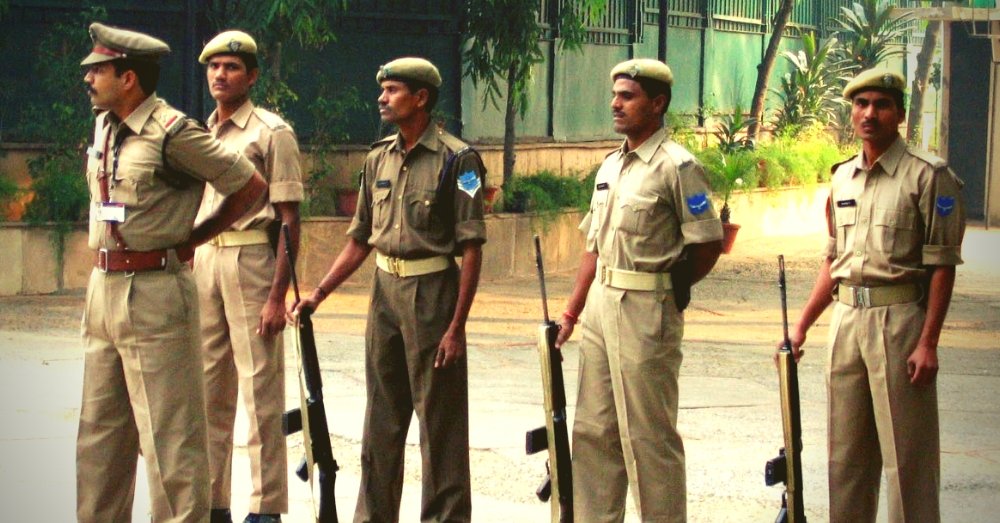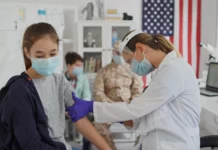Chennai-based factory owner has been arrested in connection with a tragic incident involving the sale of methanol, which led to the death of 21 individuals. The Tamil Nadu Police have taken swift action, apprehending a total of 16 people, including the factory owner, individuals who purchased the methanol, and those involved in its transportation. They have been accused of murder in this devastating case.
Tragedy Strikes: Chennai Factory Owner Arrested in Methanol Disaster
The police investigation revealed that the factory owner, Ilayanambi, who owns Jaya Sakthi Private Ltd, unlawfully sold 1,200 liters of methanol to two individuals. These two men subsequently supplied around 8 liters of the deadly substance to two others. Tragically, this led to the loss of 21 lives in Villupuram and Chengalpattu districts, with several more individuals currently receiving treatment in various hospitals in Chennai. The state police chief emphasized that the timely seizure of the remaining 1,192 liters of methanol prevented an even greater catastrophe. The sale of the 1,200 liters of methanol by Ilayanambi was allegedly priced at ₹60,000.
As a preventive measure, the police have announced that a stock verification of methanol will be conducted at all factories and manufacturing units that make use of the substance. This action aims to ensure accountability and safety standards across such facilities.
The incident has raised serious concerns about the failure of law enforcement agencies to curb the availability and misuse of industrial methanol in Chennai. Consequently, the state government has taken action by suspending 10 police officers, including the Superintendent of Police in Villupuram and two deputies. These disciplinary measures serve as a reminder of the importance of vigilance and effective enforcement to safeguard public well-being.
 In response to the tragedy, Chief Minister MK Stalin has announced a relief package of ₹10 lakh for the families of the deceased, providing some financial support and assistance during this difficult time. The government’s commitment to addressing the issue and preventing the recurrence of such incidents is evident through this measure.
In response to the tragedy, Chief Minister MK Stalin has announced a relief package of ₹10 lakh for the families of the deceased, providing some financial support and assistance during this difficult time. The government’s commitment to addressing the issue and preventing the recurrence of such incidents is evident through this measure.
The incident has not been without political backlash. The opposition parties, AIADMK and the BJP, have criticized the ruling DMK government, branding it as “incompetent” in handling the situation. This political scrutiny underscores the need for all parties to prioritize public safety and work collectively to prevent similar incidents in the future.
Methanol Mishap: Arrest of Chennai Factory Owner Sends Shockwaves
It is imperative to recognize that tragedies such as this have far-reaching consequences, affecting not only the victims and their families but also the community as a whole. The loss of innocent lives is a painful reminder of the urgency to address the sale and consumption of harmful substances. It serves as a call to action for authorities to strengthen regulations, enhance surveillance, and promote public awareness about the dangers associated with illicit substances.
Furthermore, the tragic methanol incident in Tamil Nadu serves as a stark reminder of the potential dangers associated with the misuse and availability of industrial substances. It highlights the urgent need for comprehensive measures to address the root causes of such incidents and prevent their recurrence.
 Pursuit of Justice: Investigation and Arrests in the Methanol Tragedy
Pursuit of Justice: Investigation and Arrests in the Methanol Tragedy
One crucial aspect that must be emphasized is the importance of raising awareness among the general public about the hazards of consuming substances like methanol. Education campaigns and community outreach programs can play a significant role in disseminating information about the risks involved and promoting responsible behavior.
There is a pressing need for stricter regulations and monitoring of the sale and distribution of industrial chemicals. Authorities must work closely with manufacturers, suppliers, and distributors to ensure that proper safety protocols are in place and that substances are only sold to authorized individuals or entities. Regular inspections and audits can help identify any illegal activities and enforce compliance with safety standards.
Preventive Measures: Addressing the Availability and Misuse of Industrial Substances
The Tamil Nadu government’s decision to suspend police officers involved in the incident demonstrates a commitment to accountability and transparency. However, it is equally crucial to conduct a thorough review of existing protocols and procedures within law enforcement agencies to identify any systemic issues that may have contributed to the tragedy. By addressing these shortcomings and implementing necessary reforms, the state can bolster the effectiveness of its law enforcement efforts and enhance public safety.
Moving forward, the focus should be on implementing comprehensive preventive measures to safeguard the public from similar incidents. This includes not only strengthening enforcement and regulations but also improving collaboration among various stakeholders. Government agencies, law enforcement, industry bodies, community organizations, and citizens must work in tandem to create a robust framework that prioritizes public safety and mitigates the risks associated with the misuse of industrial substances.
It is essential to view this tragic event as a catalyst for change, rather than an isolated incident. Lessons learned from such incidents should inform policies, regulations, and practices to prevent future occurrences. Only through a concerted effort and a shared commitment can society effectively address the complex challenges posed by the misuse of harmful substances and here such incidents become a thing of the past.

Chennai Social and economic development initiatives should be prioritized to uplift vulnerable communities and provide them with alternative livelihood options. By addressing the root causes of such societal challenges, authorities can reduce the demand for illicit substances and create a more inclusive and resilient society.
It is crucial to recognize the long-term implications of the methanol tragedy and take steps to prevent similar incidents in the future. Building a resilient and sustainable system requires ongoing efforts and continuous improvement. Here are some key areas that should be addressed:
Strengthening Regulatory Frameworks: Chennai Reviewing and enhancing existing regulations related to the sale, storage, and transportation of hazardous substances is of utmost importance. Authorities must ensure strict compliance with safety standards and implement regular inspections and audits to identify any lapses or violations. Collaboration with industry experts and relevant stakeholders can help in developing robust guidelines and protocols.
Public Awareness and Education: Chennai Creating awareness campaigns and educational programs is essential to inform the public about the dangers associated with consuming illicit substances or misusing industrial chemicals. Schools, community centers, and media platforms can play a vital role in disseminating accurate information, promoting responsible behavior, and debunking myths surrounding such substances.
Strengthening Law Enforcement: Chennai Building the capacity of law enforcement agencies to effectively combat the illicit trade of harmful substances is crucial. This includes providing specialized training to personnel, improving intelligence gathering capabilities, and promoting interagency cooperation to dismantle criminal networks involved in the production and distribution of illicit substances.
Rehabilitation and Support Services: Chennai Establishing rehabilitation programs and support services for individuals struggling with substance abuse is essential for their recovery and reintegration into society. These programs should include counseling, medical assistance, vocational training, and opportunities for employment to help affected individuals rebuild their lives.
International Cooperation: Chennai Collaborating with international partners and sharing best practices can contribute to a more comprehensive and effective response to the illicit trade of harmful substances. Sharing intelligence, coordinating efforts, and implementing joint initiatives can enhance the ability to track and intercept illegal substances across borders.
Continuous Monitoring and Evaluation: Chennai Regular monitoring and evaluation of implemented measures are crucial to assess their effectiveness and identify areas for improvement. Feedback from affected communities, stakeholders, and experts should be actively sought to ensure that strategies are tailored to address specific challenges and adapt to changing circumstances.
Engaging Civil Society and NGOs: Chennai Active involvement of civil society organizations, non-governmental organizations (NGOs), and community leaders is vital in raising awareness, providing support services, and advocating for policy changes. These organizations can play a crucial role in bridging gaps, reaching marginalized communities, and amplifying the voices of those affected by substance-related tragedies.

















































